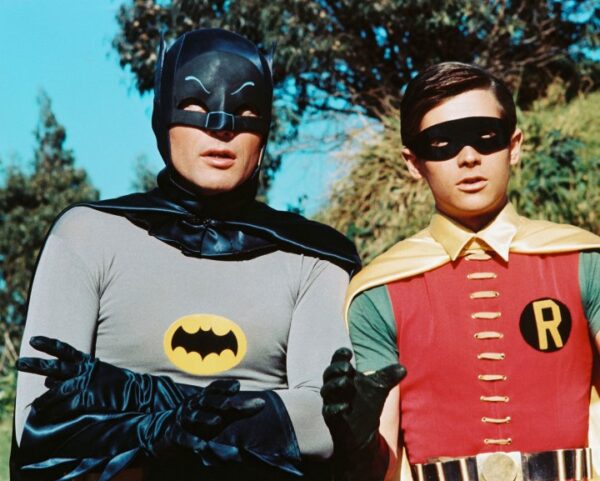Extra effort is the rule, or so we hear.
“If you want to be somebody, it will take more than you’re doing.”
“If you want to succeed, work harder.”
But some people are born lucky.
Clint asks, “Do you feel lucky? Do you, punk?”
In sports you have to push past certain feelings, like exhaustion.
First you build a base of endurance, strength, and skill.
Once you feel like you’ve done enough, feel like you’ve ‘got it,’ you take it into competition with someone who feels the same way.
Afterwards one of you will feel better than the other.
While both competitors ought to continue improving, sometimes an early winner decides they’ve had enough, or done enough, to keep winning.
They stop training, rest on their laurels, and more times than not, fade away too early.
Extra effort was too much.
If you played high school football, you know the drill.
We had a coach who addressed the team after a loss with, “You are more interested in the dance after the game, than the game.”
Dance? Maybe they were more interested in going home than getting the team past distractions, like the post-game dance.
I can report that going to a dance after getting thumped badly in front of the home crowd is not a festive moment.
Losers at the dance don’t celebrate very hard, and we were losers most of the time.
But that changed with new leadership that created distance between the old way and the new way.
When a new coach comes in, they need to create a new culture, their culture, a winning culture.
If they are allowed to stay long enough, and they’re a good coach, winning happens.
Is it because of extra effort?
Everyone’s A Winner With Extra Effort
“A team is only as good as its worst player.”
You’ve heard that?
The worst player is different in fifth grade flag football than high school varsity, from varsity to college, from college to pro.
Is every professional football player better than any college guy?
Yes, but there are exceptions.
Until recently college players fought for their scholarship and defended their positions against any newcomer showing up.
A pro is motivated by protecting a lifestyle with a vengeance against any newcomer.
If their life had been defined by football before, once they turn pro, football is their life.
The big boys protect with their diet, their workouts, and their vitamins.
And their rest.
Getting good rest is extra effort that goes unrecognized in younger people who need to go out late at night, hit the hot spots, and make connections.
For some, that’s too much extra effort the wrong way.
Late-twenties to mid-thirties guys all pumped up with more money than anyone in their family history has ever seen if you added all their money together.
Party on.
There are 15 QBs set to make at least $40 million a season.
Take the Dallas Cowboys for example.
They have $60 million a year Dak throwing to $34 million a year CeeDee.
If money could buy wins they’d be in the Super Bowl more than once every twenty-nine years, and counting.
But, when the focus is making money, the Cowboys are champs.
You Get Out What You Put In
History tells us extra effort needs to focus in the right direction, on the right problems.
Europe needed extra effort in WWI.
As a kid in the 60’s I didn’t know the difference between WWI and WWII.
As an adult with a history degree, with graduate seminars in the causes of WWI, I know more.
Still, the biggest difference I remember were the dates in WWI;
It started in 1914; America shipped over in 1917, bringing the extra effort for the right side to win.
There was a shorter lag-time in WWII which began in 1939, with America joining in late 1941 on the day after ‘the date which will live in infamy.’
Like many my age feel, WWII looms in shadows of reality.
Was it really that bad? How could it have been that bad?
Following recent research, which means watching documentaries on Prime after my wife goes to bed, it was worse.
What didn’t I know?
The Germans applied extra effort in the east by recruiting policemen and towns people.
Regular people wore uniforms and were stationed in the east to support the early Holocaust.
These war criminals flew under the radar and went home after the war while the big names swung.
What have I learned?
With the right motivation you can make people do things they’d never do on their own.
As a nineteen year old Army recruit I learned it early.
I was given a role of responsibility in boot camp and ordered to report on something that was wrong.
But I was supposed to say otherwise.
The backstory: My platoon was jarred awake by whistles and shouting during a fire drill in the middle of the night.
Instead of assembling in formation out in front of the barracks, some of them fell down the stairs and hurt themselves.
The four platoons in the company stood in the dark, mine was the fourth, while the captain yelled out for a report from each one.
“FIRST PLATOON, REPORT.”
“ALL PRESENT AND ACCOUNTED FOR, SIR.”
First, second, third, then me.
Captain: FOURTH PLATOON, REPORT.
Me:
Captain: FORTH PLATOON, REPORT.
Me:
Captain: WHAT’S THE PROBLEM DOWN THERE, DRILL SERGEANT.
Drill Sergeant: Tell the man what he needs to hear. All present and accounted for.
Me: We’re not all present and accounted for, Drill Sergeant. Some of the guys fell down the stairs. They need help.
Captain: DRILL SERGEANT.
Drill Sergeant: Tell the man what he needs to hear.
Me:
Captain: FOURTH PLATOON, REPORT.
Drill Sergeant: ALL PRESENT AND ACCOUNTED FOR, SIR.
Captain: GET YOUR PLATOON IN ORDER, DRILL SERGEANT.
And that’s how I became a former Platoon Guide.
My extra effort was not going along with the program.
I still have questions about that.






